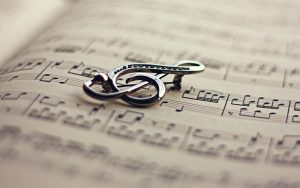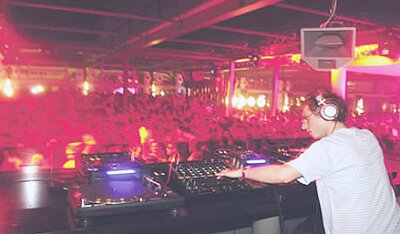Reflections on the genre of performance in music
 Any musical performance is a musical manifesto of the world, made in a shocking and entertaining way. But if, initially, the musical performance was aimed at changing society, at exposing the problems of society (just recall the Cage 4:33 experiment or some actions of the art movement “Fluxus”), then in its later interpretations the main goal becomes shocking . Today, performance has become an entertaining and completely harmless genre. Moreover, while in Russia in most of these musical experiments, they are still trying to express cosmic meanings (the same loud performances by the composer Oleg Karavaichuk), then in the West they have long ago switched to more “sparing” and at the same time accessible and understandable to the general public forms.
Any musical performance is a musical manifesto of the world, made in a shocking and entertaining way. But if, initially, the musical performance was aimed at changing society, at exposing the problems of society (just recall the Cage 4:33 experiment or some actions of the art movement “Fluxus”), then in its later interpretations the main goal becomes shocking . Today, performance has become an entertaining and completely harmless genre. Moreover, while in Russia in most of these musical experiments, they are still trying to express cosmic meanings (the same loud performances by the composer Oleg Karavaichuk), then in the West they have long ago switched to more “sparing” and at the same time accessible and understandable to the general public forms.
Western musical performances are firmly established in concert practice. They are difficult to surprise, but they are well paid. This includes the guys in the costumes of blue aliens from the Blue Man Group, who play on PVC pipes and collect literally stadiums for concerts, and the Norwegian group Hurra Torpedo, where the participants use everything that comes to hand and, at the same time, collect millions views on the web.
At the same time, there are a number of really good, although completely entertaining, foreign projects in this genre. For example, the American group The Piano Guys, which performs works of various styles, their own improvisations and transcriptions on the piano and cello, uses all sorts of spectacular effects and non-standard playing methods. Or the American violinist Lindsey Stirling, who successfully combines an electric violin game with hip-hop movements and performs with her bright shows all over the world. And how many talented musicians go to play in the subway, parks and museums.
There are many such examples today. Moreover, the genre of performance has long had a strong influence on classical music. Suffice it to recall any avant-garde directorial interpretation of the classical opera. On the one hand, this is good: there is an opportunity to diversify the performance techniques, to attract a wider range of listeners to concerts, on the other – it leads to the fact that the elite, spiritual basis of classical music is increasingly dissolved in the format of a spectacular, but low-grade show.
It is simply impossible to stop the process of “performing” at this stage, and there is nothing to, because this is the very natural turn of musical evolution. The only thing that can be done is to lay strong spiritual foundations and correct priorities in the younger generation. Then it will be possible to reach a middle ground in the genre of performance: talk confidentially about something serious, entertain somewhere, without going to extremes.
Similar problems can be found in the direction of Contemporary classical music. This direction covers a huge reservoir of different currents in music: from the first atonal experiments and minimalist compositions of the XX century to the spectral experiments of the XXI. All of them appeared in connection with the spread of computer and recording technologies, which often replace the sound of real instruments.
Among young (and not so much) composers, it is now difficult to name someone who does not “fiddle” with computer technologies for creating music: they discover a whole range of new techniques that have a tremendous psychoacoustic influence on the listener. The main thing here is the idea and the emotional message that the music will carry to the masses. Just want to remember the best modern examples of this direction: inspired, deeply human music of masters Philip Glass, Ludovico Einaudi, Roberto Kachapalya, John Tavener, Henryk Guretsky, Michael Naiman, Pavel Karmanov and many other excellent composers. And, on the contrary, an absolute substitute for music: all sorts of experiments by avant-garde composers, meaninglessly reproducing a drill or playing vegetables for 30 minutes. The echoes of these experiences resonate in modern heavy electronic and rock music.
Therefore, as a fundamental principle, it is necessary to focus on classical music education. A person who is accustomed to good music built according to the laws of form and harmony will not be able to perceive artificial sound chaos and will always distinguish “good” music from “bad”. As a result, the ranks of the classics are replenished only with genuine works of art that carry some important meaning. And any, the most daring experiments should be a means here, not an end in itself.
Separately, I would like to mention the two main problems today in the world of classical music. Firstly, the average cultural level of visitors. Hence the problems with the repertoire. The audience can, to the point of exhaustion, listen to Beethoven’s smash-hit 5th symphony, Mozart’s 40th, Rachmaninoff’s 2nd concerto, but with a creak, a more complex repertoire, for example, of 20th century composers. That’s the logical result: academic music is not updated at the proper pace.



